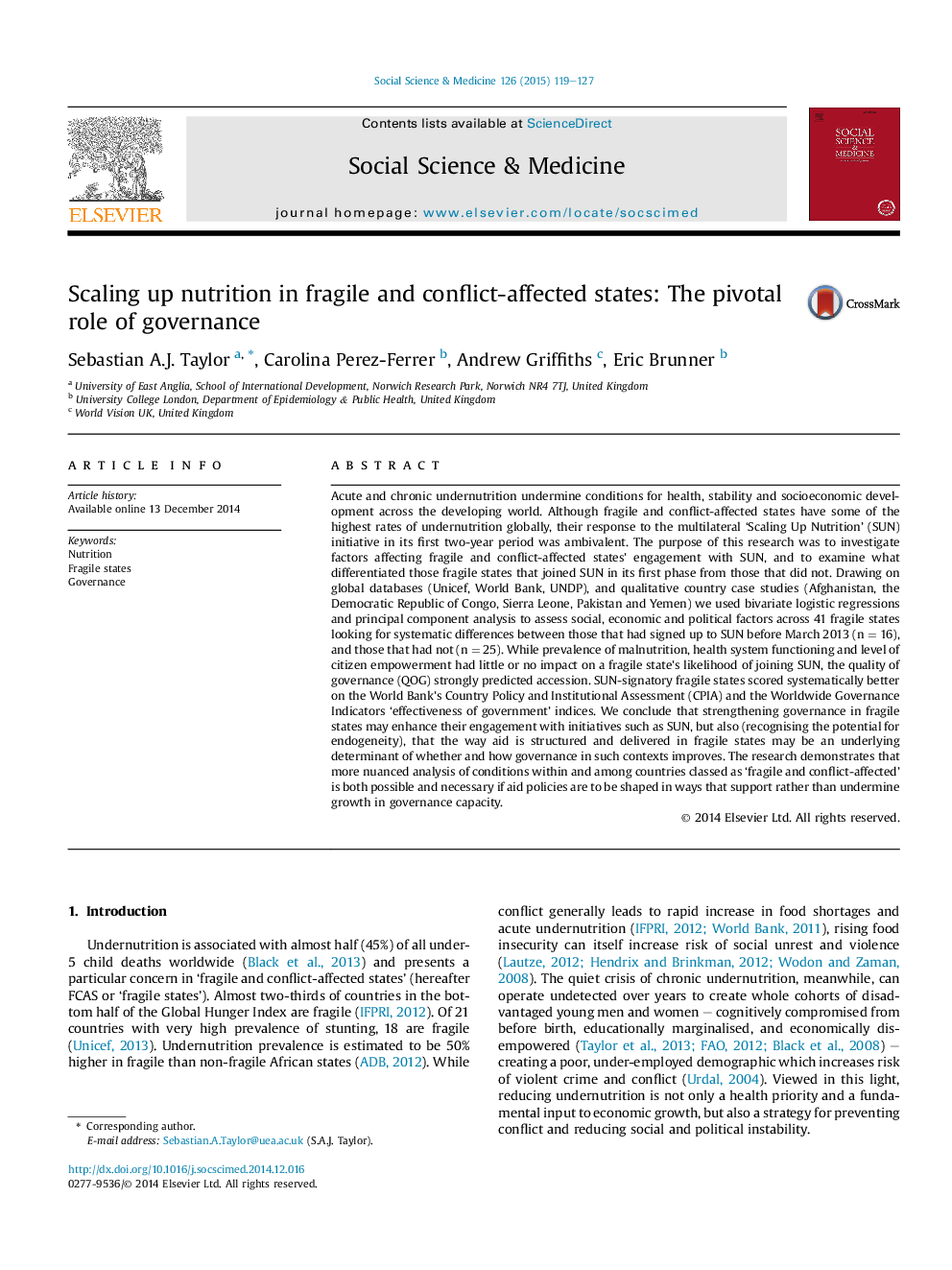| کد مقاله | کد نشریه | سال انتشار | مقاله انگلیسی | نسخه تمام متن |
|---|---|---|---|---|
| 7333592 | 1476042 | 2015 | 9 صفحه PDF | دانلود رایگان |
عنوان انگلیسی مقاله ISI
Scaling up nutrition in fragile and conflict-affected states: The pivotal role of governance
ترجمه فارسی عنوان
افزایش میزان تغذیه در کشورهای آسیب پذیر و آسیب دیده: نقش اساسی حکومتداری
دانلود مقاله + سفارش ترجمه
دانلود مقاله ISI انگلیسی
رایگان برای ایرانیان
کلمات کلیدی
تغذیه، دولت های شکننده، حکومت،
موضوعات مرتبط
علوم پزشکی و سلامت
پزشکی و دندانپزشکی
سیاست های بهداشت و سلامت عمومی
چکیده انگلیسی
Acute and chronic undernutrition undermine conditions for health, stability and socioeconomic development across the developing world. Although fragile and conflict-affected states have some of the highest rates of undernutrition globally, their response to the multilateral 'Scaling Up Nutrition' (SUN) initiative in its first two-year period was ambivalent. The purpose of this research was to investigate factors affecting fragile and conflict-affected states' engagement with SUN, and to examine what differentiated those fragile states that joined SUN in its first phase from those that did not. Drawing on global databases (Unicef, World Bank, UNDP), and qualitative country case studies (Afghanistan, the Democratic Republic of Congo, Sierra Leone, Pakistan and Yemen) we used bivariate logistic regressions and principal component analysis to assess social, economic and political factors across 41 fragile states looking for systematic differences between those that had signed up to SUN before March 2013 (n = 16), and those that had not (n = 25). While prevalence of malnutrition, health system functioning and level of citizen empowerment had little or no impact on a fragile state's likelihood of joining SUN, the quality of governance (QOG) strongly predicted accession. SUN-signatory fragile states scored systematically better on the World Bank's Country Policy and Institutional Assessment (CPIA) and the Worldwide Governance Indicators 'effectiveness of government' indices. We conclude that strengthening governance in fragile states may enhance their engagement with initiatives such as SUN, but also (recognising the potential for endogeneity), that the way aid is structured and delivered in fragile states may be an underlying determinant of whether and how governance in such contexts improves. The research demonstrates that more nuanced analysis of conditions within and among countries classed as 'fragile and conflict-affected' is both possible and necessary if aid policies are to be shaped in ways that support rather than undermine growth in governance capacity.
ناشر
Database: Elsevier - ScienceDirect (ساینس دایرکت)
Journal: Social Science & Medicine - Volume 126, February 2015, Pages 119-127
Journal: Social Science & Medicine - Volume 126, February 2015, Pages 119-127
نویسندگان
Sebastian A.J. Taylor, Carolina Perez-Ferrer, Andrew Griffiths, Eric Brunner,
